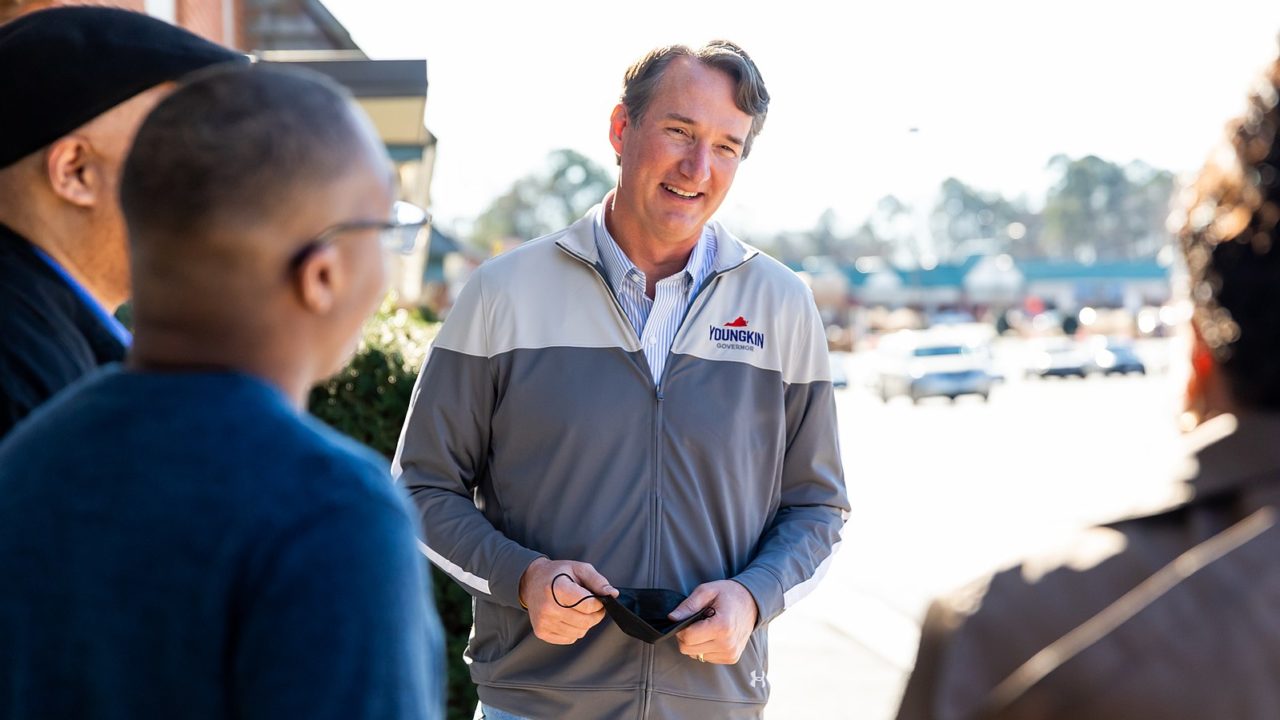 Glenn Youngkin
https://commons.wikimedia.org/wiki/File:Glenn_Youngkin_(50930278092).jpg
Glenn Youngkin
https://commons.wikimedia.org/wiki/File:Glenn_Youngkin_(50930278092).jpg
Virginia gubernatorial candidate Glenn Youngkin proposed $1.8 billion in one-time and recurring tax cuts, outlining an ambitious “Day 1” game plan to reshape the Old Dominion’s economic and political future.
Below is a list of Youngkin’s proposals to ease the tax burden on Virginia families:
- One-time tax rebates of $600 for joint filers and $300 for individual filers.
- Double the standard income tax deduction, up to $18,000 for joint filers and $9,000 for individual filers. This would save married couples $518 every year.
- Suspend the recent increase in the Virginia gas tax for 1 year.
- Eliminate the 2.5% sales tax on food and personal hygiene products.
- Require citizen approval for any local property tax increase.
- Exempt the first $40,000 in veteran retirement pay.
- Institute a tax holiday for small businesses.
If successfully passed and implemented, Youngkin’s tax plan would save a typical family of four almost $1,500 in its first year – a massive financial windfall for the middle class. In a state with the 9th-highest income tax in the nation, a doubling of the standard income tax deduction means hundreds in tax savings, including for low earners who often sacrifice a greater share of their income to the government. “Virginia ran a $2.6 billion surplus last year in the middle of a pandemic because the liberal leadership in Richmond overtaxed everybody,” Youngkin said at a forum. “That’s Virginia’s money, not Terry McAuliffe’s.”
The Republican candidate’s proposals are a refreshing alternative to the tax-and-spend policies of his opponent, former governor Terry McAuliffe. While serving as Virginia’s governor from 2014 to 2018, McAuliffe advocated for tens of millions in new taxes for Northern Virginia, including a 2–3% levy on hotels and a 66% increase in the real estate tax. McAuliffe also supported a hike in the wholesale gas tax, which would have added several cents to the cost of a gallon of fuel in the region. Though he told the Washington Post he would not raise taxes if elected again, McAuliffe does not share Youngkin’s bold aspirations to pass billions in needed tax relief.
Youngkin and McAuliffe teed off in their first gubernatorial debate last week, revealing deep divides in how they would each wield power in Richmond. While Youngkin said he would rely on public service announcements to encourage Virginians to get vaccinated, calling it a matter of personal choice, McAuliffe doubled down on a promise to mandate vaccinations for “everybody” in the commonwealth. Youngkin also said his tax plan would bring down the cost of living for Virginia residents and make the state a better place to do business, as he hammered his opponent for high spending proposals.
“If Terry McAuliffe is your governor, then get your checkbook out, because he’s going to have to raise taxes for you,” Youngkin said at Thursday’s debate.
Nearly all of Youngkin’s tax plans require the approval of both chambers of the Virginia legislature. While both houses are currently controlled by the Democratic party, all 100 seats in the House of Delegates are up for election this year. If Republicans can flip six seats to regain control of the House in November, a Youngkin tax cut would need only two Democratic votes in the narrowly split Senate to become reality.

